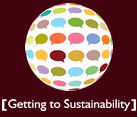The Westpac Group has launched its 2017 sustainability strategy aimed at addressing the most pressing issues in society and the environment today.
Three areas specifically targeted include:
- Demographic and cultural change
- Economic solutions for environmental challenges
- Identifying new avenues of wealth creation
Westpac Group Executive Christine Parker said the bank wanted to set big targets and “raise awareness of these issues and challenge everybody to do more.”
“We have been working towards our sustainability goals over the past 15 years and I’m proud of what we’ve achieved,” Parker said. “We want to do more than simply sustain the status quo; we want to create a better future.
“Our new strategic focus is to anticipate and shape the most pressing emerging issues where we have the skills and experience to make a meaningful difference.
“We believe that the world is changing and that people need to think differently. As one of the strongest and largest companies in our region, we have an opportunity to lead the debate. However, we want to respond in a way that benefits not only our business, but our customers and the wider community.”
The three new areas identified by senior executives across Westpac, the strategy and sustainability teams, and external stakeholders, include:
- The changing financial landscape. Long-established assumptions for personal wealth creation have changed as a result of the flattening housing market and a more volatile stock market. Westpac will identify new paths of wealth creation, which are less dependent on debt, and educate people about these changes, supported by new products and advice models.
- Anticipating the big shifts of demographic and cultural change. Demographic change is a key social and economic challenge facing Australia, with 25% of the population forecast to be over 65 by 2050. With a specific focus on workforce participation, Westpac will increase flexible work practices to help people stay in the workforce longer and find and develop employees of the future from groups that are currently under-represented in the workplace.
- Providing economic solutions to environmental challenges. While the environment and the economy are often seen at odds, Westpac’s focus will be on providing innovative solutions to help customers manage environmental outcome issues, and specific support for the clean-tech and environmental services sector.
Westpac’s program highlights include:
- Make $6 billion available for lending and investment to the clean-tech and environmental services sector.
- Become carbon neutral over the life of the strategy and continue to drive improvement in Westpac’s environment footprint.
- Develop and provide a range of financial advice solutions for all Australians in a way which best suits their needs and circumstances and increase Westpac’s capacity, growing the number of planners.
- Provide access to basic and affordable banking to an additional 300,000 Pacific Islanders, with the aspiration that 50% of these will be women.
- Make $2 billion available in lending and investment to help people gain access to social and affordable housing.
- Champion the financial and broader wellbeing of 40+ women across Westpac and nationally.
- Increase the average retirement age of Westpac employees. Supporting the wellbeing of employees and, in turn, giving them greater choices around extending working life, can increase individual earning potential and retirement savings by close to $220,000 (Ernst & Young, based on an average salary of $60,000 and an extension of working life by three years).
- Encourage a national discussion on the factors that shape financial wellbeing and encourage Australians to understand and more actively manage their financial wellbeing.
- Launch one product or service each year to help retail customers manage their environmental challenges.
Source: Sustainabilitymatters.net.au
Reproduced with permission.
